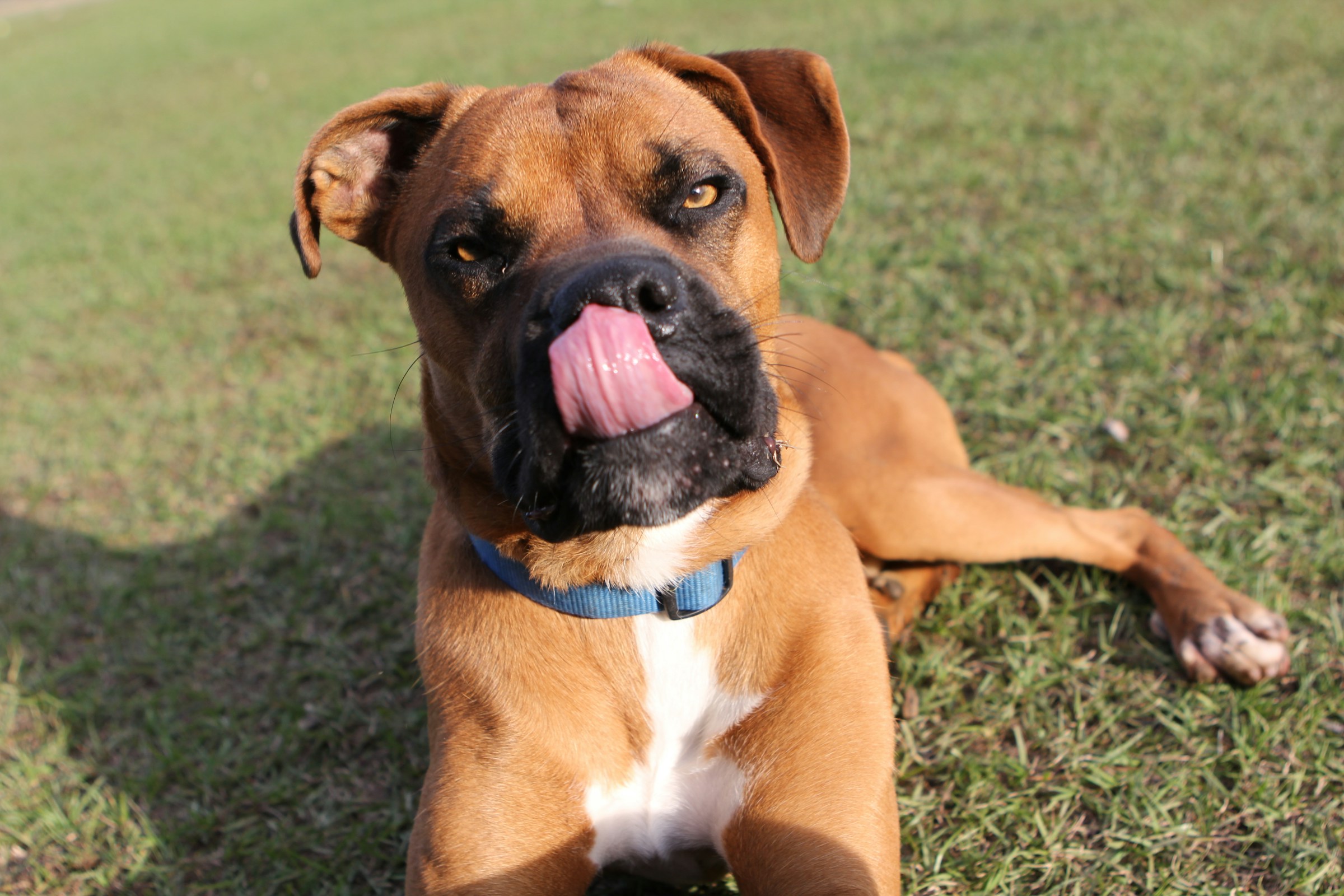Crafting a wholesome raw diet for your growing Boxer puppy is essential for their health and development. Puppies have unique nutritional needs, and a well-planned raw diet can provide the right balance of proteins, fats, and vitamins. Consider specific ingredients that cater to their growth, energy levels, and breed characteristics. This guide will explore the key elements to ensure your Boxer not only thrives but enjoys every bite of their meals. Prioritising their nutrition now lays the foundation for a long, healthy life.
Understanding the Nutritional Needs of Boxer Puppies
Boxer puppies are energetic and require a diet rich in essential nutrients to support their growth and development. Protein and fat are crucial components of a Boxer puppy diet. Protein supports muscle development, while fat provides a concentrated energy source. High-quality animal proteins, such as chicken or beef, should be the primary protein sources to meet their nutritional requirements.
Sujet a lire : Identifying and Managing Early Cataracts in Your Boston Terrier: A Comprehensive Guide
Vitamins and minerals play a significant role in a puppy’s healthy development. Calcium and phosphorus are vital for strong bones and teeth, while omega-3 fatty acids support brain development. Vitamins such as A, D, and E are also essential for maintaining a robust immune system and healthy skin.
The energy requirements of Boxer puppies can vary based on their activity levels. Active puppies may require more calories to fuel their playful nature, while less active ones might need fewer calories to prevent unnecessary weight gain. It’s important to adjust their diet according to their lifestyle to ensure they receive the right balance of nutrients.
Sujet a lire : Recognizing the First Signs of Bloat in Great Danes: Essential Steps to Take Immediately
Providing a balanced diet that meets these nutritional requirements is key to ensuring your Boxer puppy grows into a healthy and happy adult.
Components of a Balanced Raw Diet
Providing a balanced raw diet for Boxer puppies involves more than just raw meat. It’s essential to follow raw feeding guidelines to ensure they receive all necessary nutrients. A well-rounded meal composition typically includes raw meat, organs, and bones, complemented by fruits and vegetables for a complete nutritional profile.
Raw Meat, Organs, and Bones
Raw meat serves as the primary protein source, supporting muscle growth and energy. Organs like liver and kidney are nutrient-dense, providing essential vitamins and minerals. Bones offer calcium and phosphorus, crucial for bone health. These elements should form the foundation of a Boxer puppy’s diet.
Fruits and Vegetables
Including fruits and vegetables is vital as they supply fibre, antioxidants, and additional vitamins. Leafy greens, carrots, and apples are excellent choices. These components help maintain a healthy digestive system and support overall well-being.
Recommended Proportions
A balanced meal typically consists of:
- 70% raw meat
- 10% organs
- 10% bones
- 10% fruits and vegetables
Adhering to these proportions ensures your puppy receives a complete and balanced diet, supporting their growth and development. Always adjust based on individual needs and consult with a vet for tailored advice.
Ingredient Recommendations for Raw Feeding
When planning a raw diet for Boxer puppies, selecting the right ingredients is crucial. Raw diet ingredients should be chosen carefully to ensure they are safe and nutritious.
Best Protein Sources
For Boxer puppies, recommended meats such as chicken, beef, and turkey are excellent protein sources. These meats provide essential amino acids necessary for muscle growth and energy. Ensure the meat is fresh and free from additives or preservatives.
Safe Fruits and Vegetables
Incorporating safe raw foods like fruits and vegetables is important for a balanced diet. Suitable options include carrots, apples, and leafy greens. These provide fibre, vitamins, and antioxidants, promoting digestive health and overall well-being. Always wash fruits and vegetables thoroughly before serving.
Avoiding Harmful Foods and Allergens
It’s essential to avoid foods that are toxic or may cause allergic reactions in Boxer puppies. Common harmful foods include chocolate, grapes, onions, and garlic. Additionally, some puppies may be sensitive to certain proteins or grains. Monitor your puppy for any signs of allergies, such as itching or digestive issues, and consult a veterinarian if necessary.
By carefully choosing ingredients, you can create a nutritious and safe raw diet for your Boxer puppy.
Potential Health Benefits of a Raw Diet
Feeding your Boxer puppy a raw diet can offer numerous health advantages, promoting overall wellness. One significant benefit is the improvement in coat condition and skin health. A diet rich in natural oils and essential fatty acids can lead to a shinier coat and healthier skin, reducing the likelihood of dryness and irritation.
Enhanced digestion and nutrient absorption are also notable raw diet benefits. Raw foods are often easier for puppies to digest, leading to more efficient nutrient uptake. This can result in firmer stools and less gastrointestinal distress, making it a suitable option for puppies with sensitive stomachs.
Another advantage is the positive impact on energy levels and overall vitality. A balanced raw diet can provide Boxer puppies with the nutrients they need to support their high energy levels. This can lead to more playful behaviour and better endurance during activities, contributing to their physical and mental development.
Incorporating a raw diet into your Boxer puppy’s routine can significantly boost their wellness, offering a range of health advantages that support their growth and development. Always consult with a veterinarian to tailor the diet to your puppy’s specific needs.
Guidelines for Transitioning to a Raw Diet
Transitioning your Boxer puppy to a raw diet requires careful planning and patience. A gradual introduction is crucial to ensure a smooth adjustment.
Steps for Gradually Introducing Raw Food
Start by replacing a small portion of your puppy’s current food with raw food. Gradually increase the raw portion over 7-10 days, allowing your puppy’s digestive system to adapt. This slow transition helps prevent digestive upset and allows your puppy to become accustomed to the new diet.
Monitoring Puppy’s Response During the Transition
Keep a close eye on your puppy’s behaviour and stool consistency. Look for signs of improved energy and coat condition. If you notice any adverse reactions, such as diarrhoea or vomiting, slow down the transition process and consult a vet if necessary.
Tips for Successful Dietary Changes and Troubleshooting
- Feeding transition tips: Maintain consistency in feeding times and portion sizes.
- Introduce new meats and vegetables one at a time to identify any allergies.
- Ensure fresh, clean water is always available.
Successful transitioning to a raw diet involves patience and careful observation, ensuring your puppy’s health is prioritised throughout the process.
Safety Considerations in Raw Feeding
Ensuring raw feeding safety is paramount when preparing meals for your Boxer puppy. Proper hygiene practices are essential to prevent any health risks associated with raw food. Start by washing your hands thoroughly before and after handling raw meat. This simple step can significantly reduce the risk of bacterial contamination.
Best Practices for Handling Raw Meat
Handling raw meat with care is crucial. Use separate cutting boards for raw meat and other food items to avoid cross-contamination. Ensure that all utensils and surfaces are cleaned and sanitised after contact with raw ingredients. This practice helps maintain a safe kitchen environment.
Avoiding Cross-Contamination in the Kitchen
Cross-contamination is a common concern in raw feeding. Store raw meat in sealed containers in the refrigerator, away from other foods. This prevents juices from leaking and contaminating other items. Additionally, always defrost meat in the refrigerator rather than at room temperature to minimise bacterial growth.
Importance of Sourcing Quality Ingredients
Sourcing high-quality ingredients is vital for your puppy’s health. Choose reputable suppliers who provide fresh, human-grade meat. Quality ingredients not only ensure nutritional value but also reduce the risk of pathogens. By following these guidelines, you can safely incorporate raw feeding into your puppy’s diet.
Consulting with Veterinarians and Experts
When feeding your Boxer puppy a raw diet, seeking veterinary advice is essential to ensure their nutritional needs are met. Regular check-ups with a veterinarian can help monitor your puppy’s health and make necessary dietary adjustments. These visits allow for tailored advice based on your puppy’s unique health requirements and lifestyle.
Importance of Professional Guidance
Engaging in expert consultation is crucial when considering a raw diet. Veterinarians can provide insights into the specific nutritional needs of Boxer puppies, ensuring a balanced intake of proteins, fats, vitamins, and minerals. They can also identify any potential health issues early, allowing for prompt intervention.
Resources for Pet Nutritionists and Communities
For those seeking further guidance, reputable pet nutritionists can offer specialised advice on raw feeding. These experts can develop customised meal plans that cater to your puppy’s individual needs. Additionally, joining raw feeding communities can be a valuable resource. These groups often share experiences, tips, and support, helping you navigate the complexities of raw feeding with confidence.
By prioritising veterinary advice and expert consultation, you can ensure your Boxer puppy thrives on a raw diet, benefiting from a well-rounded and nutritionally sound feeding plan.











